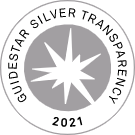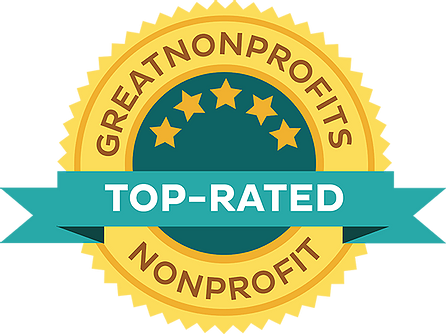Application period is OPEN.
SUBMISSION DEADLINE IS DECEMBER 21, 2024
Michael Dee Grant
Michael Dee (1948-2017) dedicated his life to wildlife conservation and even after officially retiring in 2008 from his position as general curator of the Los Angeles Zoo, he remained active as a board member of various conservation organizations including the International Rhino Foundation, Bighorn Institute, and Herpetological Conservation International (HCI) where he was a founding board member. Mike was also an active member in the Southern California herpetological community and well known for his immense library and unsurpassed knowledge of even the most obscure species. HCI is proud to annually award a grant named in Mike's honor that furthers the mission of conservation of the world's reptile and amphibian species. 2023 marks our seventh annual call for proposals and we are pleased to announce that there will be two grants awarded this year, each for $1200 USD.
Eligibility
Anyone may apply, however preference will be given to currently-enrolled students (undergraduate and graduate level) and early-career faculty conducting herpetological research.
Eligible Expenses
Expenses eligible for funding include: (1) travel (e.g., fuel, airfare) associated with field research; (2) equipment (field-based or laboratory-based). Funds may not be used for salaries, personal expenses, travel to meetings, overhead, or any other indirect costs.
Criteria for Awards
The following criteria will be used to select award recipient:
A. Scientific merit of the proposed project.
B. Nature of the proposed project; priority will be given to natural history studies, in particular those on threatened and endangered species, as they are an underfunded yet crucial first step for informing conservation policy.
Application
To qualify for the grant, the applicant must submit their application by December 21, 2024. In accepting the grant, the recipient agrees to acknowledge Herpetological Conservation International in any publications or public presentations of research funded by the grant. In accepting the grant, the recipient agrees to an interview with HCI that will be posted on various HCI social media platforms so HCI members may "meet" the recipient. The recipient also agrees to abide by all applicable wildlife laws and obtain IACUC approval (or equivalent) from their institution.
Herpetological Conservation International Michael Dee Grant applications must include the following:
1. Cover page including the following: Project title, applicant's name, address, phone, and email.
2. Introduction: Provide background for the proposed work. Include a clear statement of the problem being addressed and any outcomes predicted as a result of the research.
3. Materials and methods: Describe the study site and the materials and methods that will be used to accomplish the objectives of the proposed research. Indicate whether you have an approved Animal Care (IACUC or equivalent) protocol covering the proposed methods or whether you will be submitting such a protocol. When necessary, diagrams, images of plans, and maps may be referred to in text and attached at the end of the document and do not count against the five-page limit
4. Intellectual merit and broader implications: Address the potential for your research of advancing herpetology or herpetological conservation/public education.
5. Budget: Indicate the budget for the entire project and clearly state what portion the HCI grant will fund.
6. The anticipated completion date of the research.
7. Applicant curriculum vitae
8. Letters of support: Student applicants must include a letter of support from a faculty advisor. For non-academic individual and institutional applicants, letter(s) of support from collaborating partners, institutions, or past advisor are required. Letter(s) of support should be emailed and should include an address and phone number at which the writer can be contacted.
Application proposals should be submitted electronically as a Word document or single PDF file. Begin the file name with the applicant's last name (e.g., lastname_HCIgrant.pdf). Letters of support may be attached as separate files. The entire proposal should be double-spaced and not exceed 5 double-spaced pages (excluding cover page, literature cited, applicants CV, necessary figures, and letters of support) and should be typed using a common font (e.g., Arial, Courier, Times) no smaller than 10 pt.
Grant proposals or questions for Herpetological Conservation International about the Michael Dee Grant should be emailed to directly to info@herpconservation.org
HCI is a Non-profit 501(c)3 EIN: 47-1633701
Herpconservation.org
Michael Dee (1948-2017) dedicated his life to wildlife conservation and even after officially retiring in 2008 from his position as general curator of the Los Angeles Zoo, he remained active as a board member of various conservation organizations including the International Rhino Foundation, Bighorn Institute, and Herpetological Conservation International (HCI) where he was a founding board member. Mike was also an active member in the Southern California herpetological community and well known for his immense library and unsurpassed knowledge of even the most obscure species. HCI is proud to annually award a grant named in Mike's honor that furthers the mission of conservation of the world's reptile and amphibian species. 2023 marks our seventh annual call for proposals and we are pleased to announce that there will be two grants awarded this year, each for $1200 USD.
Eligibility
Anyone may apply, however preference will be given to currently-enrolled students (undergraduate and graduate level) and early-career faculty conducting herpetological research.
Eligible Expenses
Expenses eligible for funding include: (1) travel (e.g., fuel, airfare) associated with field research; (2) equipment (field-based or laboratory-based). Funds may not be used for salaries, personal expenses, travel to meetings, overhead, or any other indirect costs.
Criteria for Awards
The following criteria will be used to select award recipient:
A. Scientific merit of the proposed project.
B. Nature of the proposed project; priority will be given to natural history studies, in particular those on threatened and endangered species, as they are an underfunded yet crucial first step for informing conservation policy.
Application
To qualify for the grant, the applicant must submit their application by December 21, 2024. In accepting the grant, the recipient agrees to acknowledge Herpetological Conservation International in any publications or public presentations of research funded by the grant. In accepting the grant, the recipient agrees to an interview with HCI that will be posted on various HCI social media platforms so HCI members may "meet" the recipient. The recipient also agrees to abide by all applicable wildlife laws and obtain IACUC approval (or equivalent) from their institution.
Herpetological Conservation International Michael Dee Grant applications must include the following:
1. Cover page including the following: Project title, applicant's name, address, phone, and email.
2. Introduction: Provide background for the proposed work. Include a clear statement of the problem being addressed and any outcomes predicted as a result of the research.
3. Materials and methods: Describe the study site and the materials and methods that will be used to accomplish the objectives of the proposed research. Indicate whether you have an approved Animal Care (IACUC or equivalent) protocol covering the proposed methods or whether you will be submitting such a protocol. When necessary, diagrams, images of plans, and maps may be referred to in text and attached at the end of the document and do not count against the five-page limit
4. Intellectual merit and broader implications: Address the potential for your research of advancing herpetology or herpetological conservation/public education.
5. Budget: Indicate the budget for the entire project and clearly state what portion the HCI grant will fund.
6. The anticipated completion date of the research.
7. Applicant curriculum vitae
8. Letters of support: Student applicants must include a letter of support from a faculty advisor. For non-academic individual and institutional applicants, letter(s) of support from collaborating partners, institutions, or past advisor are required. Letter(s) of support should be emailed and should include an address and phone number at which the writer can be contacted.
Application proposals should be submitted electronically as a Word document or single PDF file. Begin the file name with the applicant's last name (e.g., lastname_HCIgrant.pdf). Letters of support may be attached as separate files. The entire proposal should be double-spaced and not exceed 5 double-spaced pages (excluding cover page, literature cited, applicants CV, necessary figures, and letters of support) and should be typed using a common font (e.g., Arial, Courier, Times) no smaller than 10 pt.
Grant proposals or questions for Herpetological Conservation International about the Michael Dee Grant should be emailed to directly to info@herpconservation.org
HCI is a Non-profit 501(c)3 EIN: 47-1633701
Herpconservation.org
SIGN UP HERE FOR Future GRANT ALERTS
|
|


